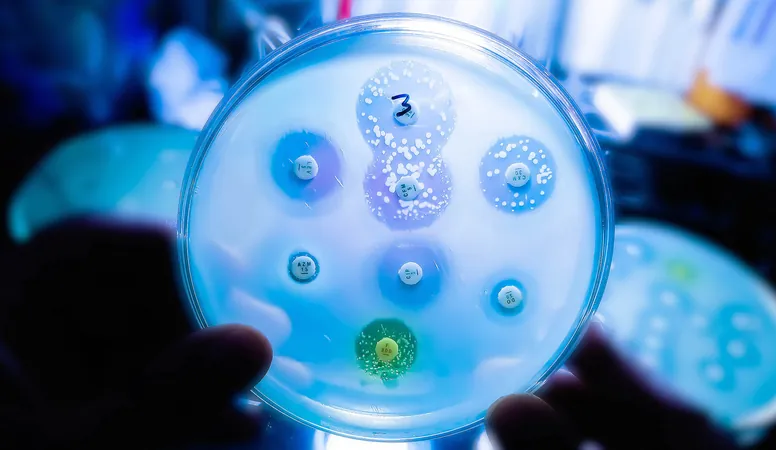
Unmasking Race: What Genetics Reveals About Our Differences
2025-04-20
Author: Kai
The Scientific Crackdown on Racism
In an era where misinformation spreads rapidly, especially on social media, understanding the biological basis of race is more crucial than ever. Despite the conclusions drawn from the Human Genome Project 25 years ago, which clearly stated that race lacks a biological foundation, misconceptions persist. Surprisingly, there is greater genetic diversity within racial groups than between them, affirming that race is more a societal construct than a biological reality.
The Political War on Scientific Truth
Recently, the U.S. government has cast its gaze on institutions like the Smithsonian, criticizing them for promoting what is deemed 'anti-American ideology.' Under the banner of an Executive Order titled 'Restoring Truth and Sanity to American History,' President Donald Trump has taken aim at exhibits that challenge conventional race narratives, including one that declares, 'race is a human invention.' This push for cultural conformity raises alarms among scientists and educators, as it threatens to undermine established scientific truths.
Historical Missteps: The Roots of Racial Theory
Tracing back to the 18th Century, the concept of race began with misguided attempts to categorize humans based on visible traits like skin color, as championed by early figures like Carl Linnaeus. His classification system, based on superficial characteristics, laid the groundwork for centuries of racial hierarchy and pseudoscience. Despite his scientific achievements, Linnaeus's descriptions pave the way for stereotypes that unjustly categorized human behavior based on physicality.
Genetics: Debunking the Myths
The evolution of biological science, particularly molecular biology, has rendered traditional race categories obsolete. Genetic analyses reveal that individuals from geographically diverse regions can share more genetic similarities than those from the same 'racial' groups. For instance, two people from different parts of Africa might be genetically more distinct than either is from a European or Asian individual.
The Social Construct of Race and its Consequences
While race may lack biological specificity, its social implications are profound. The concept of race plays a significant role in shaping social dynamics and health outcomes. Socioeconomic factors linked to race have direct implications on health disparities. For example, the COVID-19 pandemic exposed stark contrasts in infection rates and severe outcomes among different ethnic groups, often tied to their socioeconomic status rather than any genetic predispositions.
A Call for Scientific Integrity
False notions of superiority are routinely propagated by influential figures. In light of recent events, the scientific community's alarm grows, especially as politicians invoke genetics to bolster divisive narratives. By framing certain groups as 'genetically superior or inferior,' the dangerous echoes of scientific racism resurface, risking the progress achieved through understanding our shared human genome.
Moving Forward: Embracing Diversity
As we navigate the complex landscape of race, it’s essential to ground our discussions in science and recognize the rich tapestry of human genetics. Our shared history, shaped by migration and interaction, highlights the importance of solidarity over division. Genetics should serve to promote equity and understanding rather than reinforce outdated stereotypes.
In this age of misinformation, acknowledging the realities of human genetics while promoting social equity is more vital than ever.




 Brasil (PT)
Brasil (PT)
 Canada (EN)
Canada (EN)
 Chile (ES)
Chile (ES)
 Česko (CS)
Česko (CS)
 대한민국 (KO)
대한민국 (KO)
 España (ES)
España (ES)
 France (FR)
France (FR)
 Hong Kong (EN)
Hong Kong (EN)
 Italia (IT)
Italia (IT)
 日本 (JA)
日本 (JA)
 Magyarország (HU)
Magyarország (HU)
 Norge (NO)
Norge (NO)
 Polska (PL)
Polska (PL)
 Schweiz (DE)
Schweiz (DE)
 Singapore (EN)
Singapore (EN)
 Sverige (SV)
Sverige (SV)
 Suomi (FI)
Suomi (FI)
 Türkiye (TR)
Türkiye (TR)
 الإمارات العربية المتحدة (AR)
الإمارات العربية المتحدة (AR)